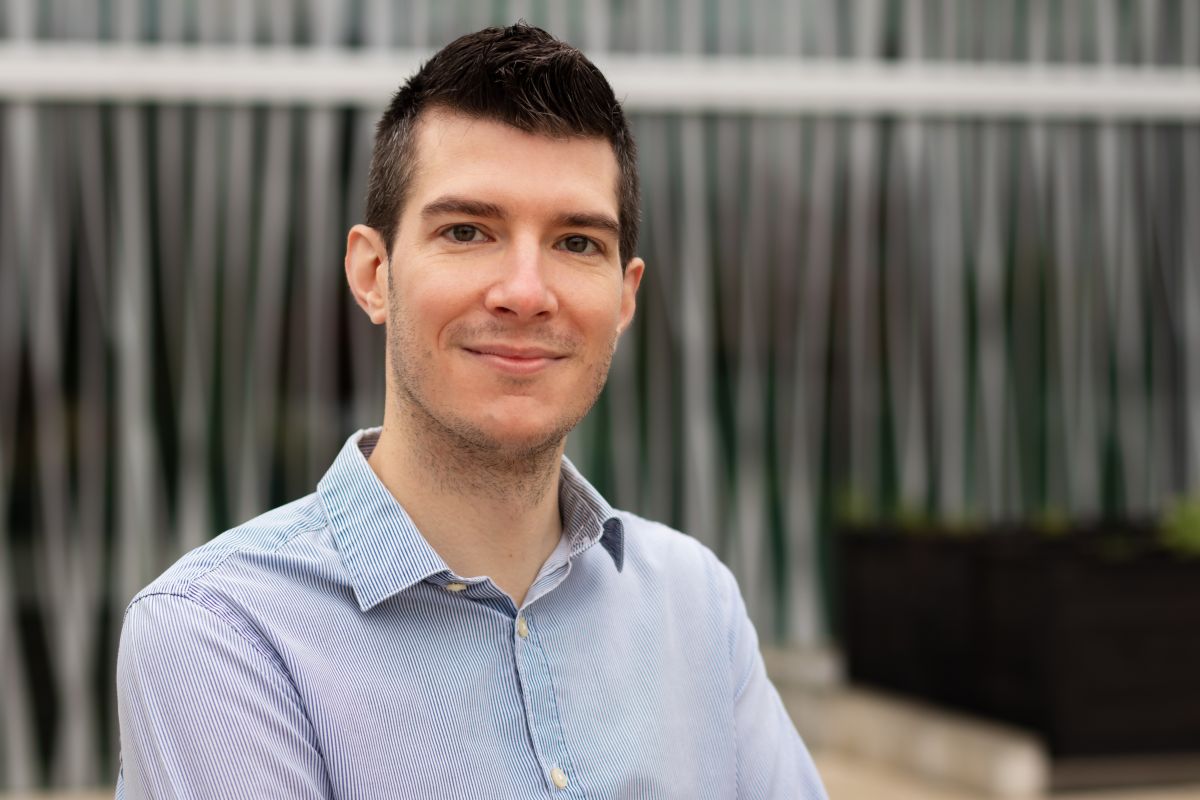
News
Lisec-Artz Prize goes to Simon Haas
15.11.2023 / Simon Haas has been awarded the Lisec-Artz Prize, endowed with €10,000, for his single-cell analysis of communication between stem and immune cells in blood cancer. The University of Bonn Foundation established this prize to honor outstanding early-career cancer researchers.

Stem cells constantly replenish the supply of fresh blood cells. If individual cells go down the wrong developmental path during the blood formation process, blood cancer can occur. Immune cells, such as T cells, are present to destroy the suspicious cells. Though not infallible, the tactic is effective as malignant stem cells communicate directly with T cells and signal that something is wrong with them. This previously unknown protective mechanism was discovered by Dr. Simon Haas and his team within the joint research focus “Single Cell Approaches for Personalized Medicine” of the Berlin Institute of Health at Charité (BIH), the Max Delbrück Center, and Charité – Universitätsmedizin Berlin. For this and other scientific contributions, Haas has now been awarded the Lisec-Artz Prize.
“Stem cells are very fascinating, but our knowledge of these indefinitely dividing cells is still incomplete. By understanding them better, we will be able to give an important boost to immunotherapy development,” says Haas, who is an award-winning early-career scientist. He moved to Berlin in 2020 after stints at the German Cancer Research Center (DKFZ) in Heidelberg and at the Massachusetts Institute of Technology (MIT) and Harvard University in Boston, USA. “Our aim is to intervene as early as possible in the disease process,” he says.
Listening in on cell-to-cell chatter
Immunotherapies seek to enhance the power of the immune system to fight cancer cells. But before inducing their elimination, T cells first have to recognize cancer cells. This often fails because cancer cells suppress the telltale signals or manipulate the T cells using other deceptive tricks. Simon Haas and his team therefore have plans to “listen in” and decipher the communication between stem cells and immune cells. To accomplish this, they will use single-cell analysis tools and develop them further. He and his team are based at the Berlin Institute for Medical Systems Biology of the Max Delbrück Center (MDC-BIMSB), which provides excellent resources and support for their work.
“Using single-cell biology techniques, we aim to investigate millions of cell pairs from those stem and immune cells that are communicating with each other,” says Haas. “Which signals cause a suspicious cell to be eliminated? Which signals block the immune cells? And since temporal processes also play a key role: Which type of interaction takes place and in which disease stage?” The team wants to uncover which strategies malignant cells use to evade the T cells – and target exactly these interactions. “Ideally,” says Haas, “we will eventually be able to stop the pathological process before blood cancer even develops.”
Text: BIH
Source: Joint press release by the BIH and the Max Delbrück CenterLisec-Artz Prize goes to Simon Haas